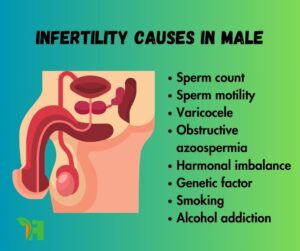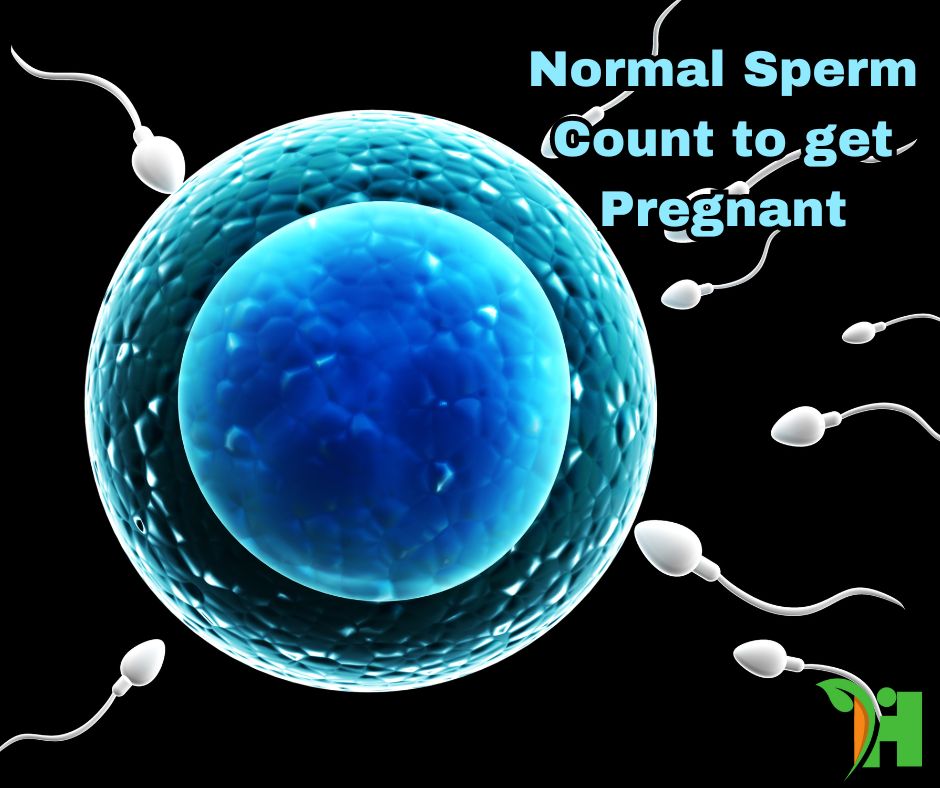Normal Sperm Count to get Pregnant
When it comes to conceiving a child, both partners play a vital role, and understanding the factors that influence fertility is essential. One critical aspect of male fertility is the sperm count. In this comprehensive article, we will explore what constitutes a Normal Sperm Count to get Pregnant, why it matters, and how you can optimize your chances of getting pregnant.

What Is Sperm Count?
Sperm count refers to the number of sperm cells present in one milliliter of semen. It is a fundamental parameter in assessing male fertility. A normal sperm count provides a good indication of a man’s reproductive health.
Guideline for Normal Sperm Count
The World Health Organization’s Guidelines
The World Health Organization (WHO) defines a normal sperm count as having at least 15 million sperm per milliliter of semen. This is considered the baseline for fertility assessment.
Total Sperm Count
Total sperm count is another crucial metric, calculated by multiplying the sperm concentration (sperm count) by the total volume of semen ejaculated. A total sperm count of 39 million or higher is generally considered optimal for fertility.
Why Does Sperm Count Matter?
Fertilization Potential
Sperm count directly impacts the chances of fertilization. A higher sperm count increases the likelihood of a sperm successfully reaching and fertilizing the egg.
Pregnancy Success Rates
Couples with a normal sperm count are more likely to achieve pregnancy within a reasonable time frame compared to those with low sperm counts.
Factors Influencing Sperm Count
Lifestyle Choices
- Smoking and Alcohol: Both smoking and excessive alcohol consumption can negatively affect sperm production and quality.
- Diet and Nutrition: A balanced diet rich in essential nutrients, vitamins, and antioxidants can contribute to healthy sperm production.
- Exercise: Regular physical activity can help maintain hormonal balance and promote optimal sperm production.
Environmental Factors
Exposure to Environmental Toxins such as Pesticides, heavy metals, and industrial chemicals can harm sperm production. Reducing exposure is crucial for preserving sperm count.
Medical Conditions
- Varicoceles: Swollen veins in the scrotum can raise testicular temperature, impacting sperm production.
- Infections: Certain infections, like sexually transmitted diseases, can affect sperm count and quality.
- Hormonal Imbalances: Conditions such as hypogonadism can lead to low sperm counts.
- Measuring and Improving Sperm Count
Semen Analysis
A semen analysis is the primary diagnostic tool for assessing sperm count and quality. It involves providing a semen sample for laboratory testing.
Lifestyle Modifications
Making positive lifestyle changes, such as quitting smoking, moderating alcohol consumption, and adopting a nutritious diet, can help improve sperm count.
Medical Intervention
In cases of underlying medical conditions, such as varicoceles or hormonal imbalances, medical intervention may be necessary to address low sperm count.
Summary: Normal Sperm Count to get Pregnant
Understanding the significance of normal sperm count is essential for couples looking to start a family. By maintaining a healthy lifestyle, reducing exposure to environmental toxins, and seeking medical advice when necessary, you can optimize your chances of achieving pregnancy. Remember that fertility is a shared journey, and both partners play a crucial role in the path to parenthood.
Related Articles:




Follow us: Normal Sperm Count to get Pregnant





